The Chinese in the United States value their children very much educate Therefore, when the child is very young, parents will start to ask about school information, purchase learning rooms, and prepare for their children to go to elementary school.At the same time, a large number of immigrants send their children to the United States every year and receive K-12 education in the United States.This article introduces in detail, how to prepare K-12 for children for children?How to check the school ranking and detailed information?
At the same time, you will also understand the types of academic systems in the United States and the types of different schools in the United States.In the United States, there are public schools that can be admitted for free, as well as private schools that need to pay high prices.In addition to public schools and private schools, there are also less known Charter School and Magnet School.Related Reading: “American Education Fund explanation: CoverDell ESA VS 529 Plan”
Whether you are preparing for your child’s entry Kindergarten, or you plan to transfer your child’s K-12 school in the United States, this article can help you.Before the child enters school, you may have the following important issues.In this article, we will help you sort out one by one:
Directory of this article
- Question 1: How is the American academic system divided?
- Question 2: Choose a public school or a private school?Choose a special school or a magnetic school?
- Question 3: Do you need to buy school district houses?
- Question 4: How to determine the school district and school distribution in the school district?
- Question 5: How to view the score of specific schools?
- Question 6: How to understand the target school more in detail?
- More children’s education articles
More children’s education:The best online Chinese course| Which mathematical thinking course is strong| How to cultivate children’s autonomous learning| How to cultivate children’s programming
Question 1: How is the American academic system divided?
First of all, you need to learn about the educational system and academic system of the United States.The American academic system is mainly divided into:
- Daycare: Generally refers to education before the age of 5, which is more common in Pre-SCHOOL and Pre-Kindergarten;
- Compulsory Education: This is often called “K-12 education”, from kindergarten to 12th grade education in high school;
- Higher Education: Generally refers to the four-year education of university.
The following is the general classification of the American academic system.It should be noted that the education system in the United States is relatively independent, and all the academic systems will be different.For example, some states require children to go to school at 5 years old, while some states require school age to be 6 years old.
grade | Corresponding age | |
Preschool | Pre-school Pre-Kindergarten | 3 to 4 years old |
Primary school to junior high school | kindergarten | 5-6 years old |
K-1 | 6 to 7 years old | |
K-2 | 7 to 8 years old | |
K-3 | 8-9 years old | |
K-4 | 9 to 10 years old | |
K-5 | 10 to 11 years old | |
K-6 | 11-12 years old | |
K-7 | 12 ~ 13 years old | |
K-8 | 13 ~ 14 years old | |
high school | K-9 | 14 ~ 15 years old |
K-10 | 15 ~ 16 years old | |
K-11 | 16 ~ 17 years old | |
K-12 | 17 ~ 18 years old | |
Higher education | Four-year university | 18 ~ 21 years old |
This article focuses on the K-12 education stage of the United States.
The American compulsory education, which is often heard of the “K-12 Education”, refers to the basic education stage of the 12th Grade from Kindergarten to high school.(Middle School) and High School stages are mainly for children and adolescents aged 5 to 18.State law often requires that children of the corresponding age group must receive the corresponding grade education.
Among them, “K” refers to Kindergarten, which is translated into “kindergarten”, but this Kindergarten is compulsory education in some states, but it does not require in other states.for example,
- Texas requires that the school must set up kindergarten classes for a long time or throughout the day, but forced children to enter school;
- South Card requires that the school must set up a whole day’s kindergarten courses, and for compulsory request for children to enter school;
- Michigan State does not require the school to set up any kindergarten courses.
The age of the United States is often divided into a fixed date of one year.Taking Texas as an example, it uses September 1st each year.If the child’s 5th birthday is before September 1 or before the year, then the child can enter school to enter school.Kindergarten, otherwise you must wait for another year to go to kindergarten.
The states of the United States have set up corresponding enrollment age.Generally speaking, they are ranging from 5 to 7 years old.Some are from the Kindergarten stage.Some are starting from the first grade.
| American states | Forced enrollment age |
|---|---|
Alabama | 6 years old |
Alaska | 7-year old |
Arizona | 6 years old |
Arkansas | 5 years old |
California | 6 years old |
Colorado | 6 years old |
Connecticut | 5 years old |
Delaware | 5 years old |
District of columbia | 5 years old |
FLORIDA | 6 years old |
Georgia | 6 years old |
Hawaii | 5 years old |
IDAho | 7-year old |
Illinois | 6 years old |
Indiana | 7-year old |
IOWA | 6 years old |
Kansas | 7-year old |
Kentucky | 6 years old |
Louisiana | 7-year old |
Maine | 6 years old |
Maryland | 5 years old |
Massachusetes | 6 years old |
Michigan | 6 years old |
Minnesota | 7-year old |
Mississippi | 6 years old |
Missouri | 7-year old |
Montana | 7-year old |
Nebraska | 6 years old |
Nevada | 7-year old |
New Hampshire | 6 years old |
New Jersey | 6 years old |
New Mexico | 5 years old |
New York | 6 years old |
North Carolina | 7-year old |
North dakota | 7-year old |
Ohio | 6 years old |
Oklahoma | 5 years old |
Ouregon | 6 years old |
Pennsylvania | 6 years old |
Rhode island | 5 years old |
South carolina | 5 years old |
South dakota | 5 years old |
Tennessee | 6 years old |
Texas | 6 years old |
Utah | 6 years old |
Vermont | 6 years old |
Virginia | 5 years old |
Washington | 8 year-old |
West Virginia | 6 years old |
Wisconsin | 6 years old |
Wyoming | 7-year old |
Kindergarten stage
Different states in the United States have different requirements for kindergarten stages of 5 to 6 years old.50 states in the United States can independently decide whether children are forced to receive education.In some states, it is a stage of compulsory enrollment, but there are no demands in other states.
For example, in Texas, 5 -year-old children did not force Kindergarten’s request for school.Hawaii requires 5 -year-old children to enroll in Kindergarten.
The following is through American Education Statistics Center It is known that the states are currently providing information on the provision of all-day or half-day kindergarten institutions in the state, as well as information about whether children are required to enter the kindergarten:
| American states | Kindergarten enrollment age | It is denying that it must be provided with kindergarten education throughout the day | Do you have to provide half-day kindergarten education | Whether children must enter kindergarten |
|---|---|---|---|---|
Alabama | Fair 5 years before September 1st | Yes | no | no |
Alaska | Fair 5 years before September 1st | no | no | no |
Arizona | Fair 5 years before September 1st | no | Yes | no |
Arkansas | 5 years before August 1st | Yes | no | Yes |
California | Fair 5 years before September 1st | no | Yes | no |
Colorado | Fair 5 years before October 1st | no | Yes | no |
Connecticut | Fair 5 years before January 1st | no | Yes | Yes |
Delaware | 5 years before August 31 years old | Yes | no | Yes |
District of columbia | 5 years before September 30 | Yes | no | Yes |
FLORIDA | Fair 5 years before September 1st | no | Yes | no |
Georgia | Fair 5 years before September 1st | no | Yes | no |
Hawaii | 5 years before July 31 years old | Yes | no | Yes |
IDAho | Fair 5 years before September 1st | no | no | no |
Illinois | Fair 5 years before September 1st | Yes | Yes | no |
Indiana | 5 years before August 1st | no | Yes | no |
IOWA | 5 years before September 15 | no | Yes | not applicable |
Kansas | Before August 31, 5 years old 8/31 | no | Yes | no |
Kentucky | 5 years before August 1st | no | Yes | no |
Louisiana | 5 years before September 30 | Yes | no | Yes |
Maine | October 15, 5 years old | no | Yes | not applicable |
Maryland | 5 years before August 1st | Yes | no | Yes |
Massachusetes | Determined according to local education institution Local Education Agency (Lea) | no | Yes | not applicable |
Michigan | Fair 5 years before September 1st | no | no | no |
Minnesota | Fair 5 years before September 1st | no | no | no |
Mississippi | Fair 5 years before September 1st | Yes | no | not applicable |
Missouri | 5 years before August 1st | no | Yes | no |
Montana | At least 5 years old 9/10 | Yes | Yes | no |
Nebraska | 7/31, 7/31, | no | Yes | no |
Nevada | The first 5 years old 9/30 | no | Yes | Yes |
New Hampshire | not applicable | no | no | no |
New Jersey | Based on local education institutions | no | no | no |
New Mexico | Fair 5 years before September 1st | no | Yes | Yes |
New York | Based on local education institutions | no | no | no |
North Carolina | 5 years before August 31 years old | Yes | no | no |
North dakota | 5 years before August 1st | no | Yes | no |
Ohio | Based on local education institutions | no | Yes | Yes |
Oklahoma | Fair 5 years before September 1st | Yes | no | Yes |
Ouregon | Fair 5 years before September 1st | no | Yes | no |
Pennsylvania | Based on local education institutions | no | no | no |
Rhode island | Fair 5 years before September 1st | Yes | no | Yes |
South carolina | Fair 5 years before September 1st | Yes | no | Yes |
South dakota | Fair 5 years before September 1st | no | Yes | Yes |
Tennessee | Over 5 years before August 15th | Yes | no | Yes |
Texas | Fair 5 years before September 1st | no | Yes | no |
Utah | 5 years before September 2nd | no | Yes | no |
Vermont | Based on local education institutions | no | Yes | no |
Virginia | 5 years before September 30 | no | Yes | Yes |
Washington | 5 years before August 31 years old | Yes | no | no |
West Virginia | Fair 5 years before September 1st | Yes | no | Yes |
Wisconsin | Fair 5 years before September 1st | no | Yes | Yes |
Wyoming | Fair 5 years before September 1st | no | Yes | not applicable |
For children who enroll or transfer to school in the middle
If you and your children have just immigrated to enter the school, or the child needs to transfer, you need to contact the school you are interested in to learn about the student status system you are located and the age corresponding to different grades.
It should be noted that when determining the specific grade, it will still be upgraded or downgraded due to the different standards of grades and ages in different states in the United States.
If the child’s age is not in the age of the graduation class, the school will be relatively simple.Generally, you can choose a grade according to the corresponding age.For example, a 9 -year-old child chooses elementary school, a 12 -year-old child chooses junior high school, and 15 -year-old children choose high school in high school.Just accept it.
It should be noted that if the child is 10 to 11 years old or 13 to 14 years old, you need to pay attention to it.
The division of primary schools and junior high schools in the American K-12 Education does not have a clear division, that is, some primary schools may use 5 grades as graduate classes, and some schools may use 6 grades as graduation classes.
For example, Balboa Gifted/High Ability Magnet Elementary School graduation class is 5 grades, while Allesandro Elementary School primary schools in the classmates are grades 6.
Similarly, the same situation occurs in junior high school.If it is a child aged 13 to 14, according to the age of different states, it may be the 8th grade of junior high school or the 9th grade of high school.
Therefore, if you are a new immigrant or a child to transfer to the state, you may need to pay more attention:
- For children aged 10 to 11, they need to determine the grades of the target school and the corresponding age group, so as to determine whether they are selected as 5th grade in elementary school or the sixth grade of middle school.
- For children aged 13 to 14, they need to understand the division standards of the age group in the target state, and determine whether the child is admitted to junior high school or high school before school selection.
Question 2: Choose a public school or a private school?Choose a special school or a magnetic school?
For K-12 education, there are different types of schools in the United States, which mainly include the following five categories.These five types of schools have their own characteristics and advantages.Parents can choose according to family economic conditions and the requirements of education content when choosing.
- Public school: This is the most common school in the United States.Educational funding and teaching management are managed by the state government uniformly.As long as you hold a qualified residence right, you can enter the public school where your school district is available for free.Certificate of formulating regional residence in the school district, such as rental contracts, housing purchase contracts, or real estate certificates, etc.
- Magnet School: The magnetic university is a free school that focuses on special disciplines.There are no strict school district restrictions, but there are strict conditions for enrollment.Parents can log in to check the admission conditions of different schools to choose.Magnetic universities are more biased in overall teaching planning.For example, schools may focus on cultivating children’s STEM skills, art ability, etc., and students with specific interests or development goals can get more sufficient education here.At the same time, magnet schools are better than most public schools in different ethnic fusion, which is a good information for Chinese parents.However, at present, to enter the magnet school, you need to go through a relatively strict admission test.Some may need to obtain qualifications through the lottery.Therefore, not all children can enter the magnet school smoothly.There are about 4,300 magnetic universities in the United States, with a total of 3.5 million students.
- Charter School:Franchise schools are also often called “experimental schools”.It is another free school in the United States.The education funding is responsible for the state government, but school management is carried out by private entities.The school has a high degree of management autonomy.wait.The effectiveness of the school’s education determines whether the school can continue to be opened.If the education of the school is determined to be failed, the school may be required to be closed.ThereforeEssenceFrom this, arrange the autonomy of teaching content to the school, and at the same time put forward requirements for the quality of teaching.This model makes some parents tend to choose a franchise school.They will think that such schools will have more educational characteristics and in lineSchool needs.
- Private school: Private schools are responsible for teaching funding and teaching management by private entities or boards.Due to their high level of funding, they often provide teaching resources better than public schools and setting personalized teaching content.At the same time, the proportion of teachers and students is also high.After graduation, the proportion of admission to prestigious schools may also be higher, but the disadvantage is that tuition fees are more expensive.
- Family lecture(Home School):This is a teaching mode where children learn at home.Parents can provide different forms of teaching according to their personal conditions.According to the legal requirements of different states, children need to regularly participateRegulations can be viewedHome School websiteCome and see different regulations of different states.At the same time, if you want to enter the university at home, if you want to enter the university, you can also apply for the ACT or SAT*test to obtain the grade certification, and then apply for the university you want.As long as the results meet the requirements, you can also get the opportunity to enter the university.
*ACT and SAT assessment are the assessment of two test students’ academic ability.Their results are used to apply for university enrollment qualifications and the application for university scholarships.
The main differences between five types of schools are as follows:
| public school Public school | Magnetic university Magnet School | Franchise school Charter school | private school Private school | Family lecture Home School | |
|---|---|---|---|---|---|
tuition fee | free | free | free | At their own expense | free |
Are there any school district division requirements? | have | none | none | none | none |
Teacher-student ratio | Larger | Smaller | generally | Smaller | Very small |
Education funding source | State Government | State Government | State government, and some private funds | Private or commercial entity | Family autonomy |
School management | State Government | State Government | Private entity | Private entity | family |
Teaching performance examination | K-12 public school system | K-12 public school system | School board of directors, local universities or private entities | Independent certification agency | Test assessment stipulated in the laws of each state |
Requirement requirements for admission/reading requirements | Need to qualify | Some need to pass the school’s examinations and interviews, and some obtain the qualifications of admission through the lottery | Generally obtains the qualifications of admission through the lottery | Meet the conditions set by different schools | According to the requirements of different states, children need to regularly test and evaluate |
School characteristics | The most popular compulsory education model in the United States, teaching funds and teaching management are determined by the state government, and students in the same state will obtain similar teaching resources and faculty allocation. | Schools established in the public education system, with special education themes, for example, specially cultivated STEM magnetic universities.Teaching management and teaching requirements are the same as public schools. | Schools funded by the state government, but completely independent of the state education system, It can provide more personalized free education.Teachers do not need state certification. | Provide expensive education with richer teaching resources and higher students’ attention. After graduation, the admission rate for prestigious schools is higher. | Personalized and exclusive education provided for families. |
How to choose public, private, franchise schools, and magnetic universities?
Facing different categories, parents can follow Home Choose the economic environment and educational purpose of the court.
1.Consider according to economic conditions
- The teaching funds of higher education in the United States can be said to be the highest in the world, so during the compulsory education stage, most families will choose free schools to enter.For example, public schools, charter school, magneticSchools (Magnet School).Generally, public schools are the simplest choices, and are allocated near the school district and residential address; franchise schools are also good choices, but there may be no public schools in the number; magnetic universities are the highest entry conditions in three types of free schools.For children, children are the highest.Training is also more purposeful.
- Although Home School does not need to pay tuition, in the process of family education, according to different family education methods, different expenses require different expenses.For example, all parents are educated by parents.Pay online lessons, etc., so the teaching expenses of Home School are very different.
- Private School is the type of school with the highest tolls in several types of schools.Generally, rich families will arrange children to enter private schools, enjoy a better teaching environment, and allow children to study in the corresponding social circle.
2.Consider the degree of personalization of educational content
In the five categories of schools, the purpose of education Degree of personalization The sorting from low to high is as follows.Note that this is not the ranking of education quality:
Public School In the United States, the most basic requirement is to hold qualified residence rights, and there are many ways to hold qualified residence rights.Buying real estate is one of the ways to obtain, but it is not the only way. After obtaining the right of residence, there are different places for living in different types of schools[source]The Therefore, for different schools, you need to understand whether there are school districts and residence requirements.If there is a place of residence, you need to purchase school district houses. Here we recommend using niche.com or Greatschools.org Come to find the school rankings in the area. Here we take the Dallas-Vosburg (DFW) area as an example.For example, you plan to immigrate or transfer to the DFW area, and you can check the K-12 school ranking through the following steps. step one: Enter niche.com, Click the [K-12] option of the menu bar: Step 2: In the right column of the top search bar, enter the area where you want to find.Here is an example of “Dallas”.From the drop-down prompt option, select “Dallas-Fort Worth Area” Step 3: In the left column of the search bar on the top, enter the school name you want to query, or not fill in any keywords, and select “K-12 SCHools” from the drop-down prompt option. Step 4: In the search results, you will see the school rankings in the Dallas-Vosburg area, ranking from high to low. Step 5: Reasonably use the Filter on the left, according to “school” or “school district”, different ages (Pre-K, Primary School, Middle School, High School), specific For grades, the types of schools (public, franchise, magnetic schools, or private schools) are targeted. Step 6: You can choose to view the school according to the “Map Method” and click the left button “View On Map”. After clicking, the search results obtained are as follows.You can view different regions through the Zoom in or Zoom Out button in the lower right corner. Step 7: Enter the specific school information page, check the school’s academic ranking, website address, various rankings, number of student teachers, etc.: Schools in the United States are distributed according to school districts.Parents can view their school districts on the GreatsChools website.The steps are as follows: step one: Enter Greatschools.org Enter the zip code or specific address in the search bar on the homepage.Here is an example of “Dallas”. Step 2: On the search results page, you can see the corresponding school and the corresponding scores.On the left side of the page, you can see the list of all schools in the school district, and the right side can be displayed in the map distribution. Step 3: Use Filter to further select the search results.More detailed screening can be performed above, including elementary school, junior high school, high school selection, and the screen screening of the Charter or Private type. Step 4: You can switch between “Map Display” and “List Display” If you click “List Display”, the display results are as follows: Step 5: After entering the page of the target school, you can view the basic information of the school district, the school and the rankings in the state.Click on the state above, you can check the overall teaching level of the state.Therefore, new immigrants may choose to move to moveParents can choose the target school district as a reference. To view the school rankings in the school district, you can view multiple school score websites, including niche.com As well as usnews.com As well as Greatschools.org and PublicSchoolReview Check it. Taking PublicSchoolReview as an example, when using other school scoring websites, there are similar operations: step one: Enter PublicSchoolReview The page can be directly screened on the page, including setting the distance radius of the place of residence, the grade section of the school, and the school type. Step 2: After entering the search results page, you can first see the overall distribution of the school in the school district or the scope of the setting range, and then the school list: Step 3: In the school list section, parents can get a lot of information, including the school’s telephone, address, providing grades, the number of students studying, and the ranking of the school’s mathematics, reading and overall grades in the state.Join the comparison selection “add to compare”.Parents can check them as needed, and the comparative analysis of target schools later is very intuitive. If you choose a school for viewing, you can see more visualized detailed school teaching analysis, including the trend of student data data, grade ranking trend, student group distribution, etc. For parents who like to screen schools through data analysis, they can get better school selection results through PublicSchoolReview. To understand the target school, in addition to viewing the rating and evaluation of the school on a third-party website, most schools in the United States will set up open days, which are generally marked as Open House or Visitation. Parents can find the relevant information of the school’s application for enrollment on the school’s homepage, and the contact information of the school department that manage the school. The best way is to send an email or call to understand the relevant situation of the school.For several schools that are special, if there are conditions, you can consider going to school and on-site inspections.At the same time, you can face the school with the school in charge of many aspects of the school. When asking the school’s relevant information, you can prepare the following questions on the paper: First figure out whether the school is a public school or a private school First figure out whether the school is a special school or a magnetic university How many grades should be read after the child transferred to school? For franchise schools or magnetic universities, the admission requirements may be different.Do you need test admission or lottery admission?Is there a address requirements? Understand that in the application process, what application materials need to be prepared. When the number of people is small, the proportion of teachers and students will be lower.For such schools, students get more teaching resources.On the contrary, the average number of people who are too high means that children may not be able to get enough attention. This allows parents to understand how the children can get the degree of security at school.During the school, in addition to teaching quality, students’ safety protection is often one of the most concerned issues for parents. American education pays attention to children’s autonomy, so sufficient library resources means that children can get more research resources and conduct more sufficient autonomous learning. For parents who value their children’s art education, this is very important.Rich art courses or activities can allow children to obtain more art training. This is very suitable for parents who pay attention to children’s social training.Through various extracurricular activities, they can cultivate children’s better social ability and a wider social vision. Although public schools are nearest arrangements, some parents’ target schools may have a certain distance from home, so schools that provide free school bus may be more popular. The bullying problem may exist in various schools, and it is also the most serious one in school issues.The more effective the school is dealt with for bullying, parents will be more assured that their children are studying at school. This is also one of the most concerned school issues that parents pay attention to.When children have academic problems, social problems, or emotional problems, the help provided by the teacher is often more effective than the help provided by the parents.ThereforeMore at ease. For immigrant students, at the beginning of the beginning, it will become very hard because of language problems.Whether the school will provide corresponding assistance to help children go through this period smoothly, it is also a question that parents are very concerned about. American parents generally pay attention to the cultivation of children’s physical fitness, so sufficient outdoor activity time can not only exercise children’s physical fitness, but also allow them to maintain sufficient mental vitality and maintain a good learning status at all times. For families that parents need to go to work, they are usually more willing to choose schools that provide a variety of after-school activities after their children are from school.In this way, parents can rest assured that they will pick up their children from school after get off work.Question 3: Do you need to buy school district houses?
Question 4: How to determine the school district and school distribution in the school district?
Take niches.com as an example
![Enter niche.com, click the [K-12] option of clicking the menu bar](https://answerlib.com/wp-content/uploads/2024/03/7365751d4c0ecf07856cdc0d.png)
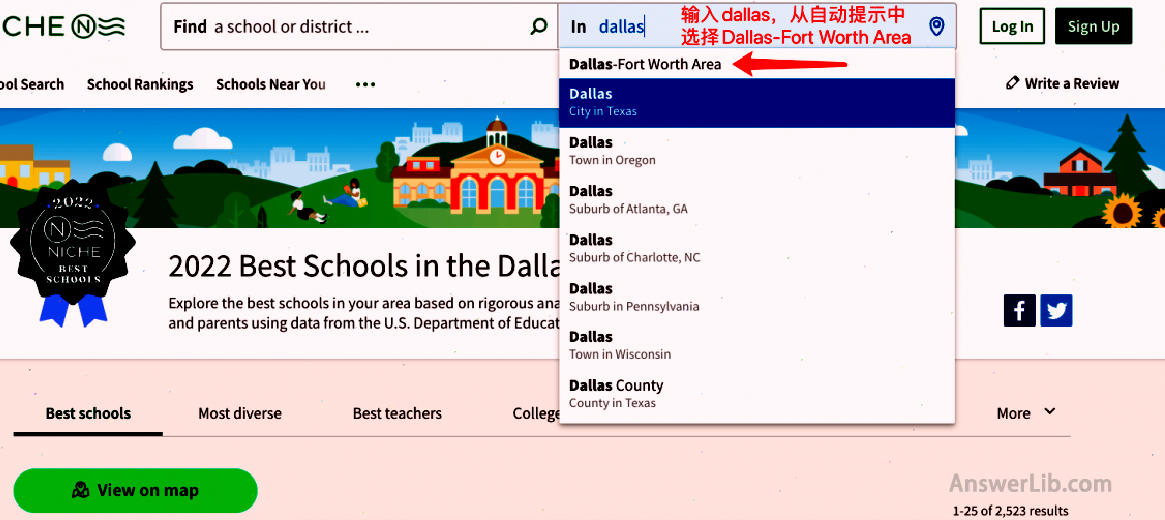
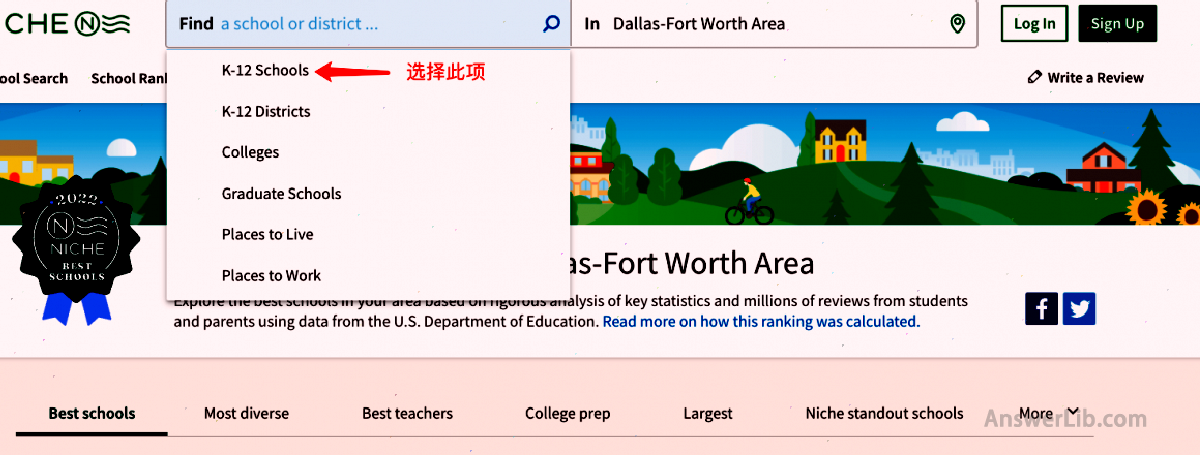
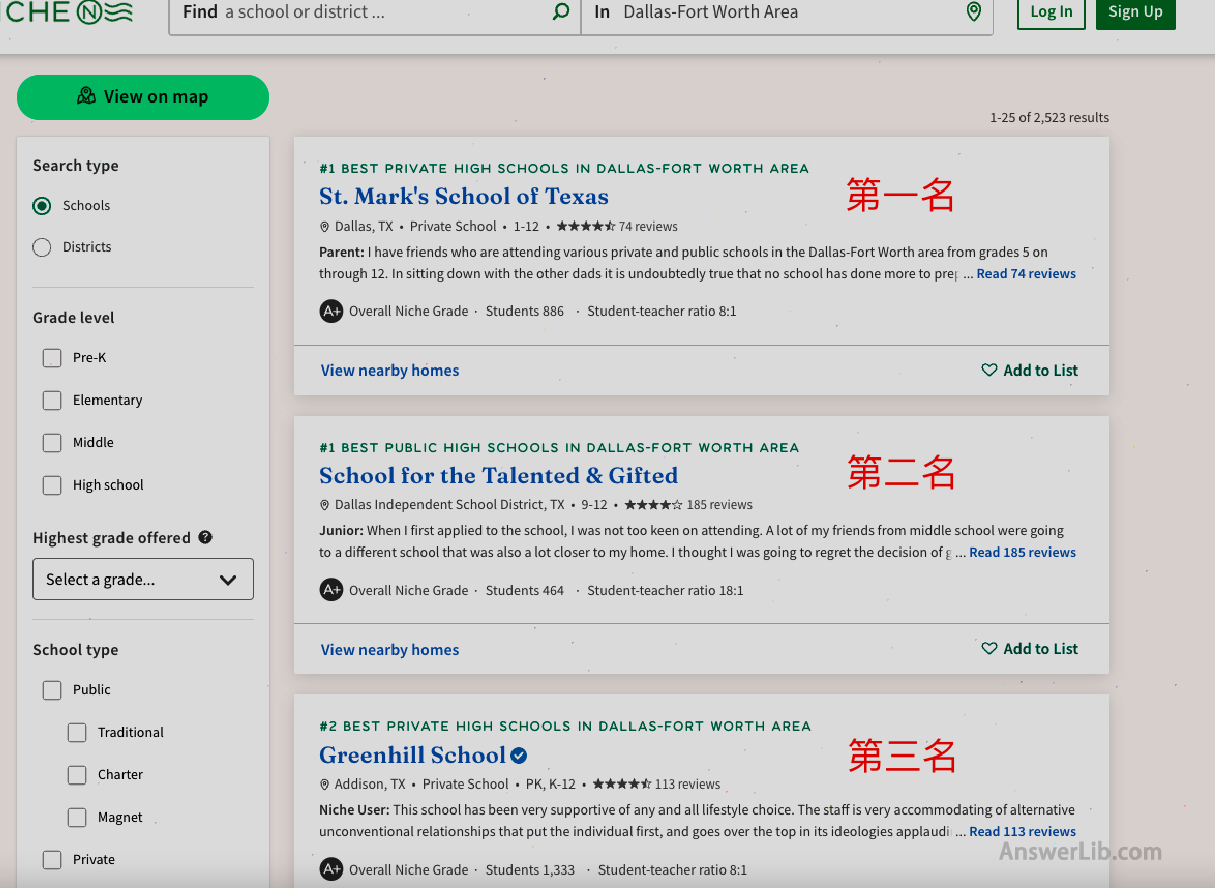


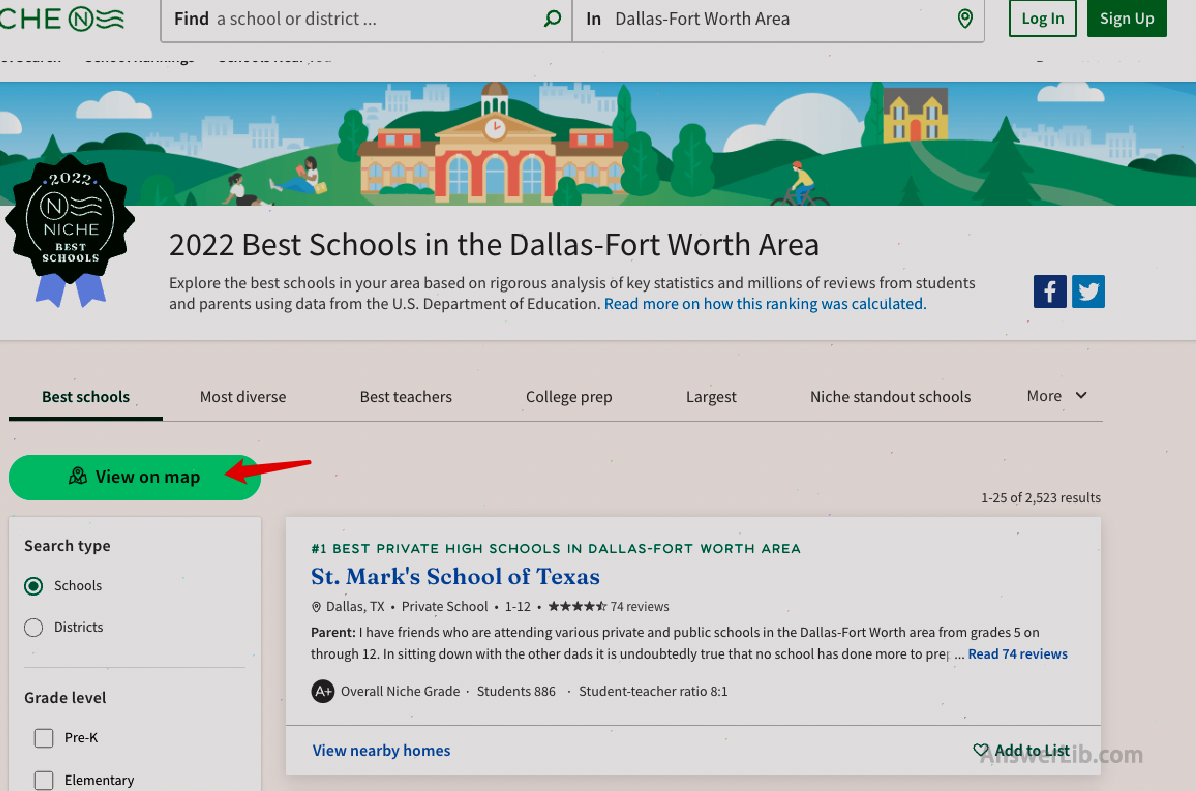
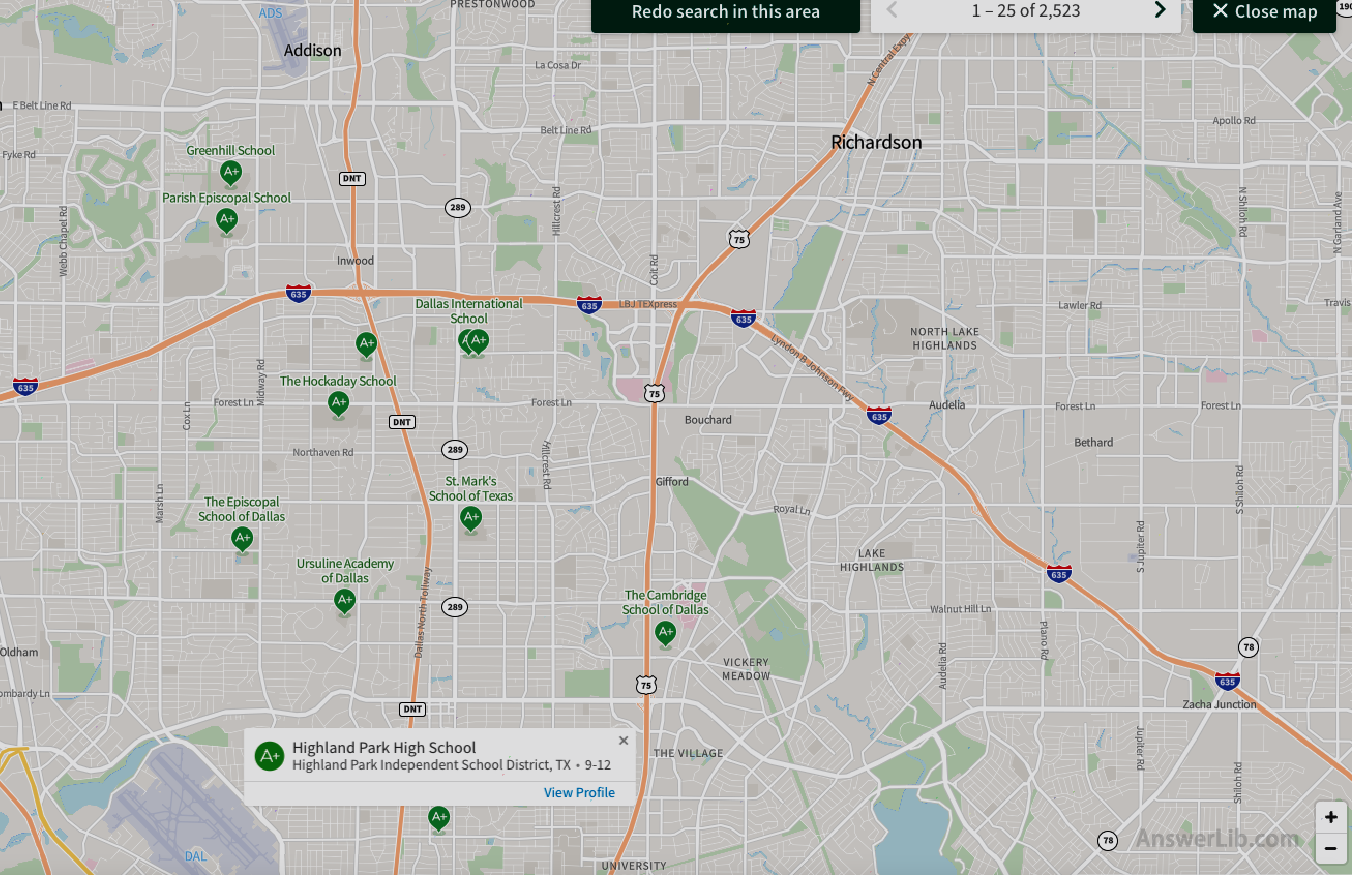
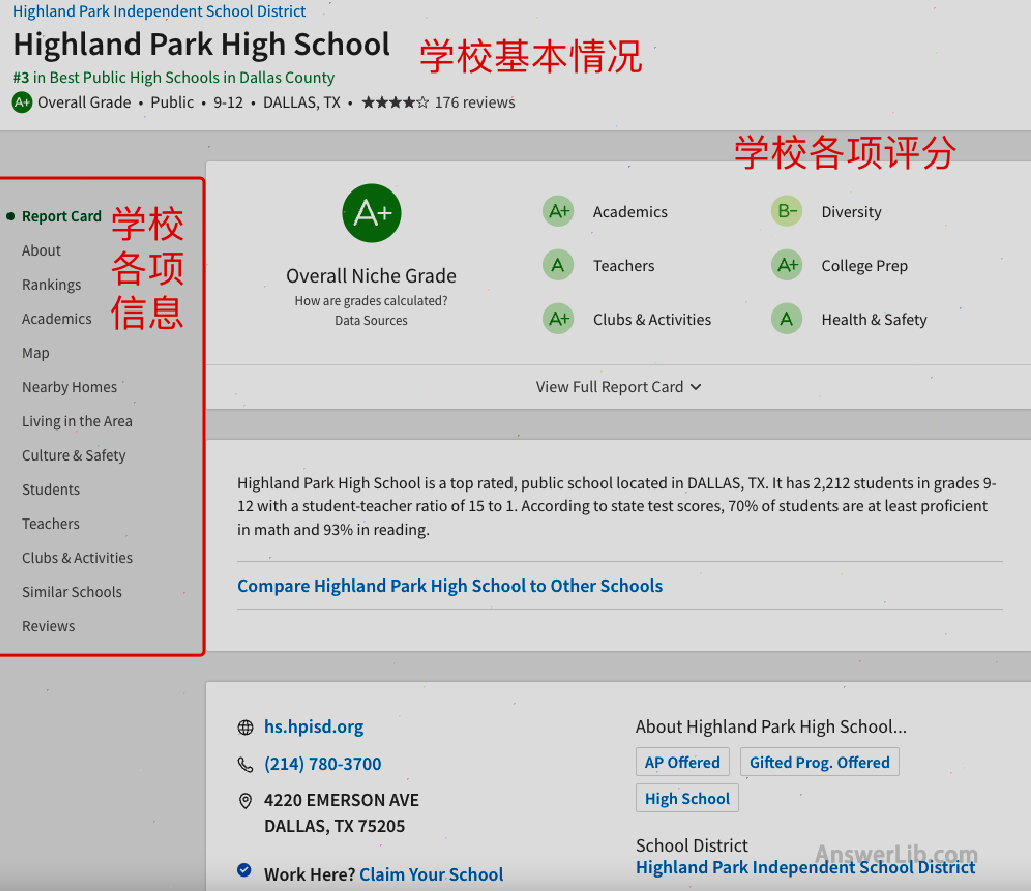
Take GreatsChools.org as an example
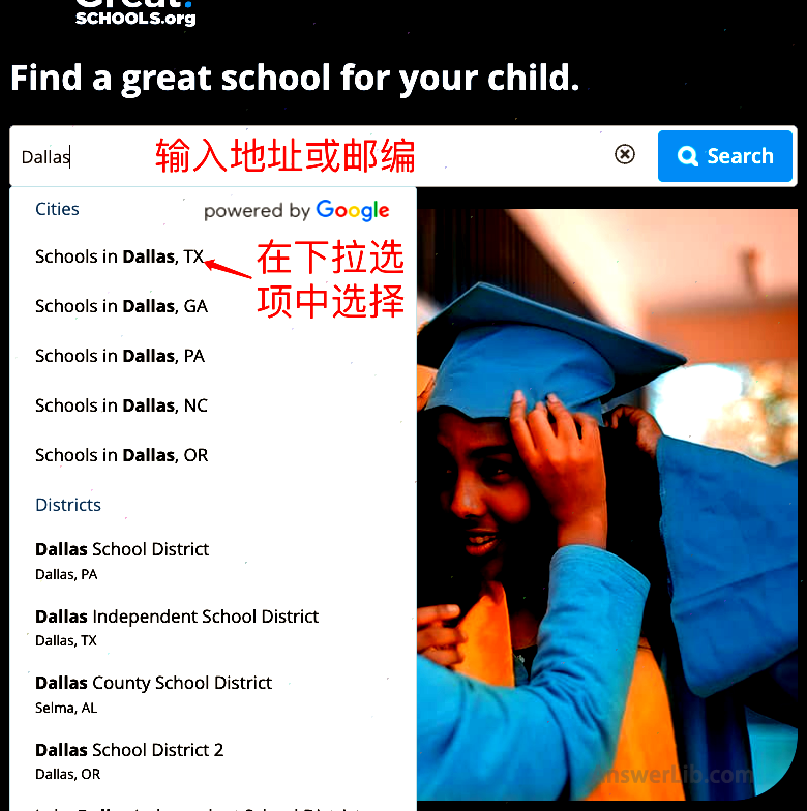
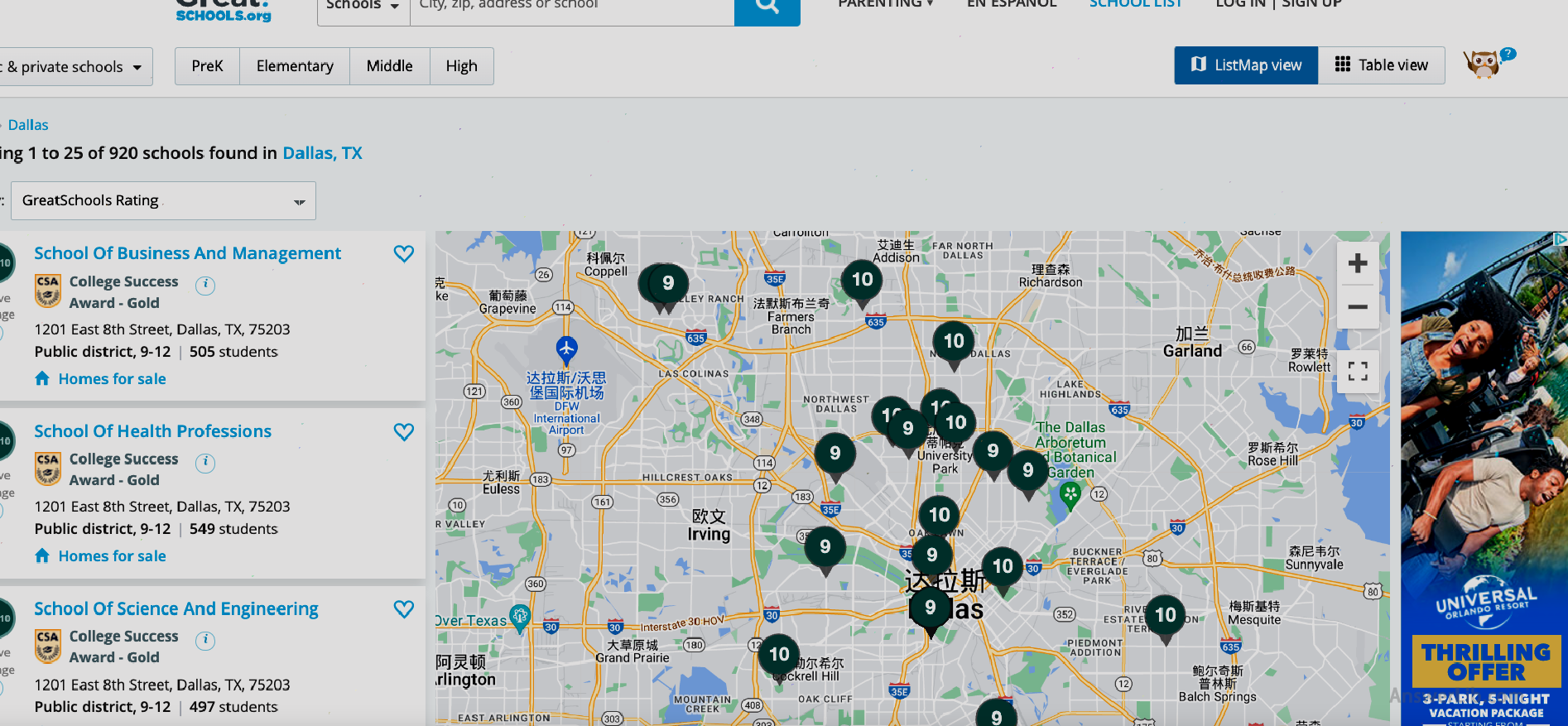
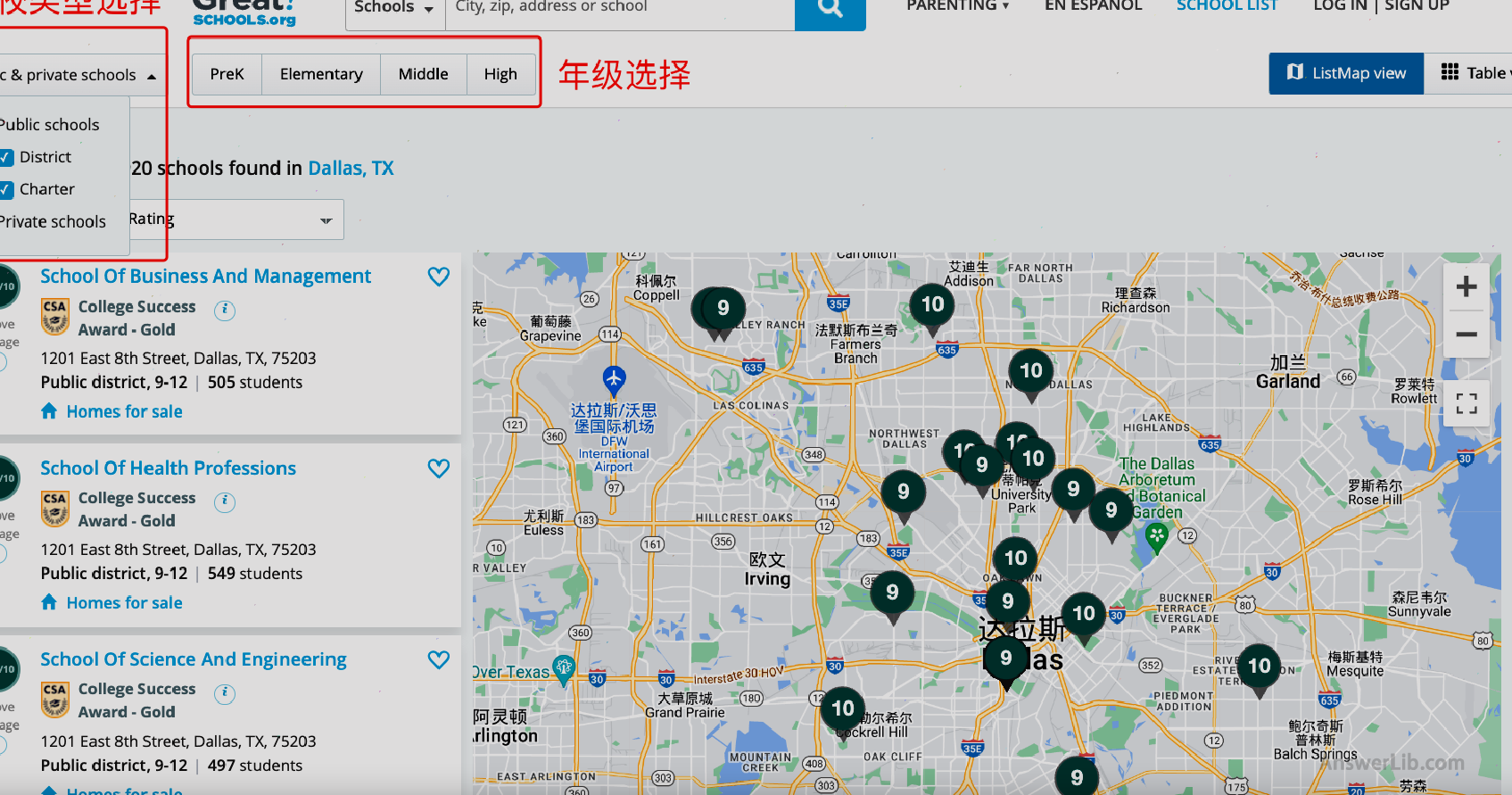
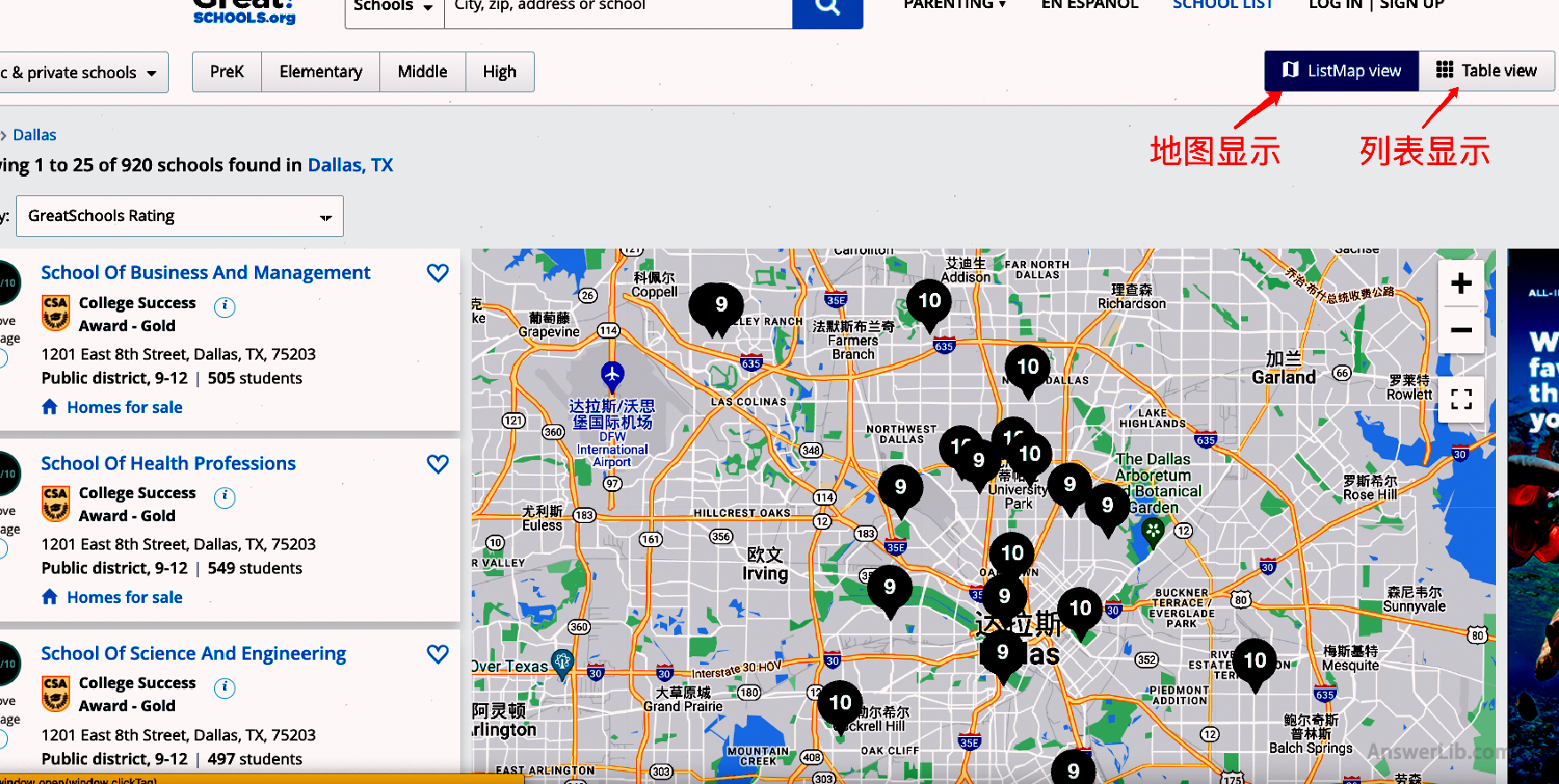
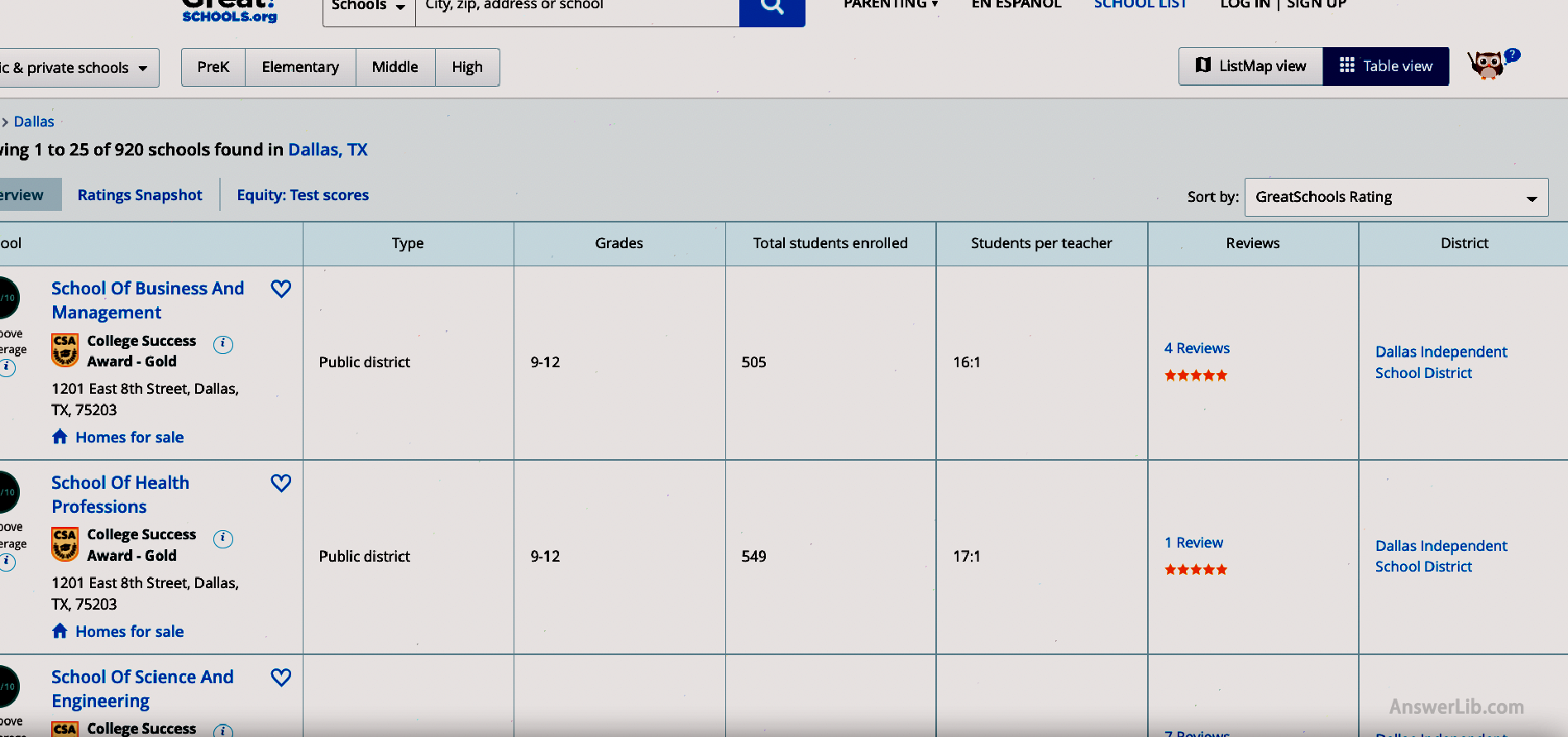
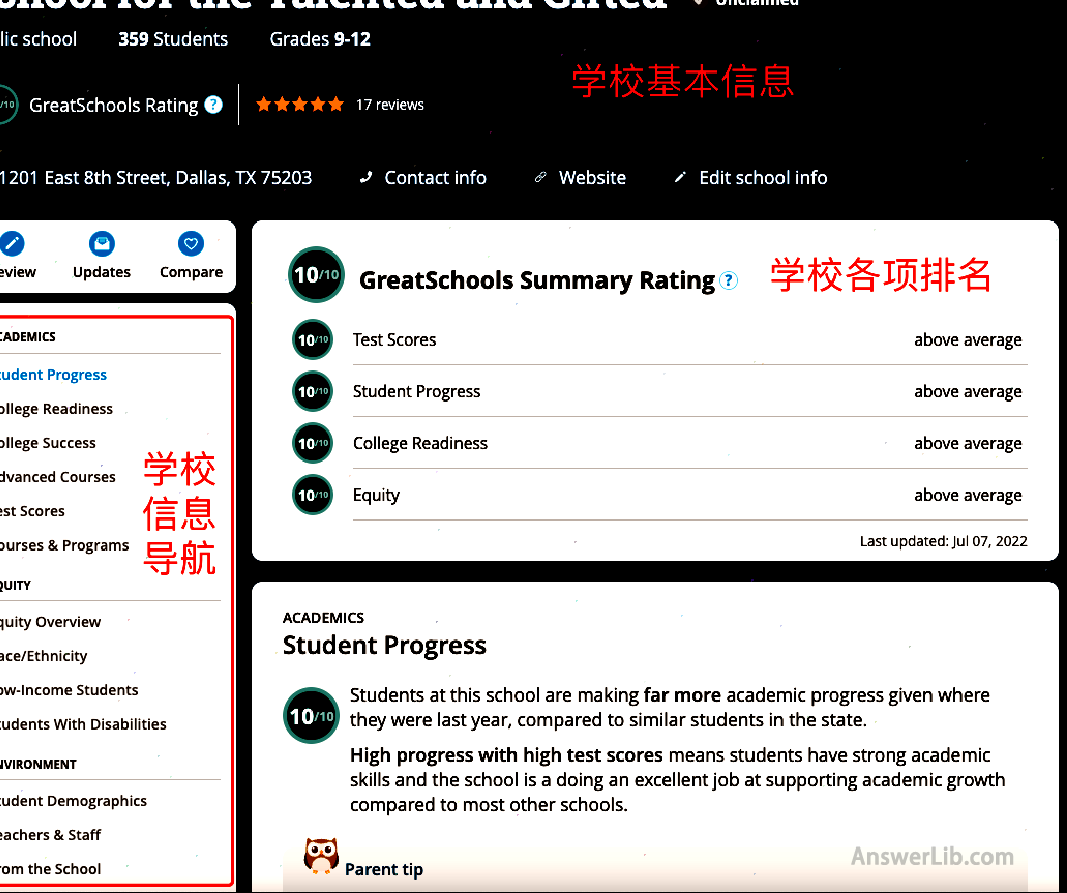
Question 5: How to view the score of specific schools?
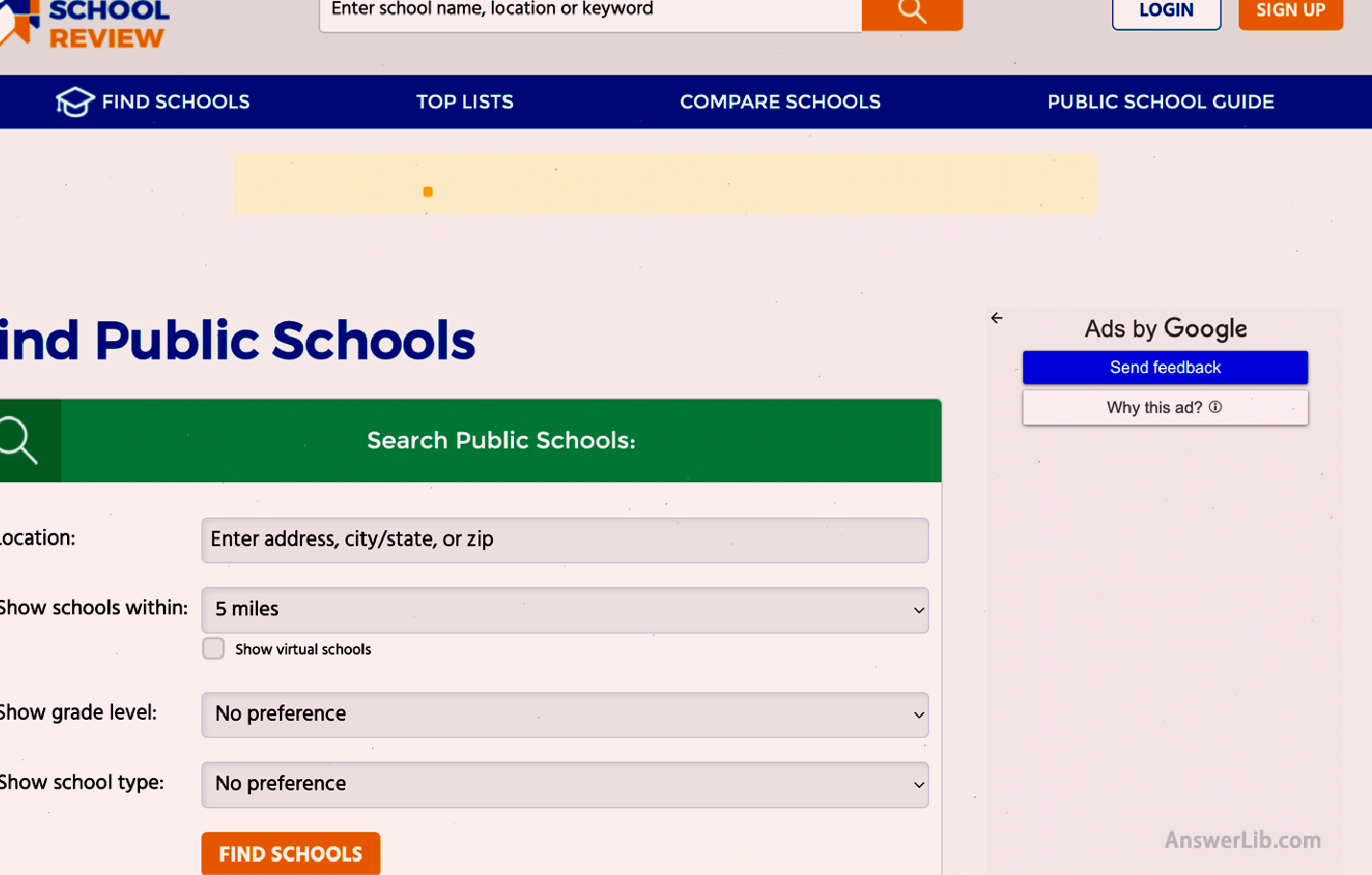
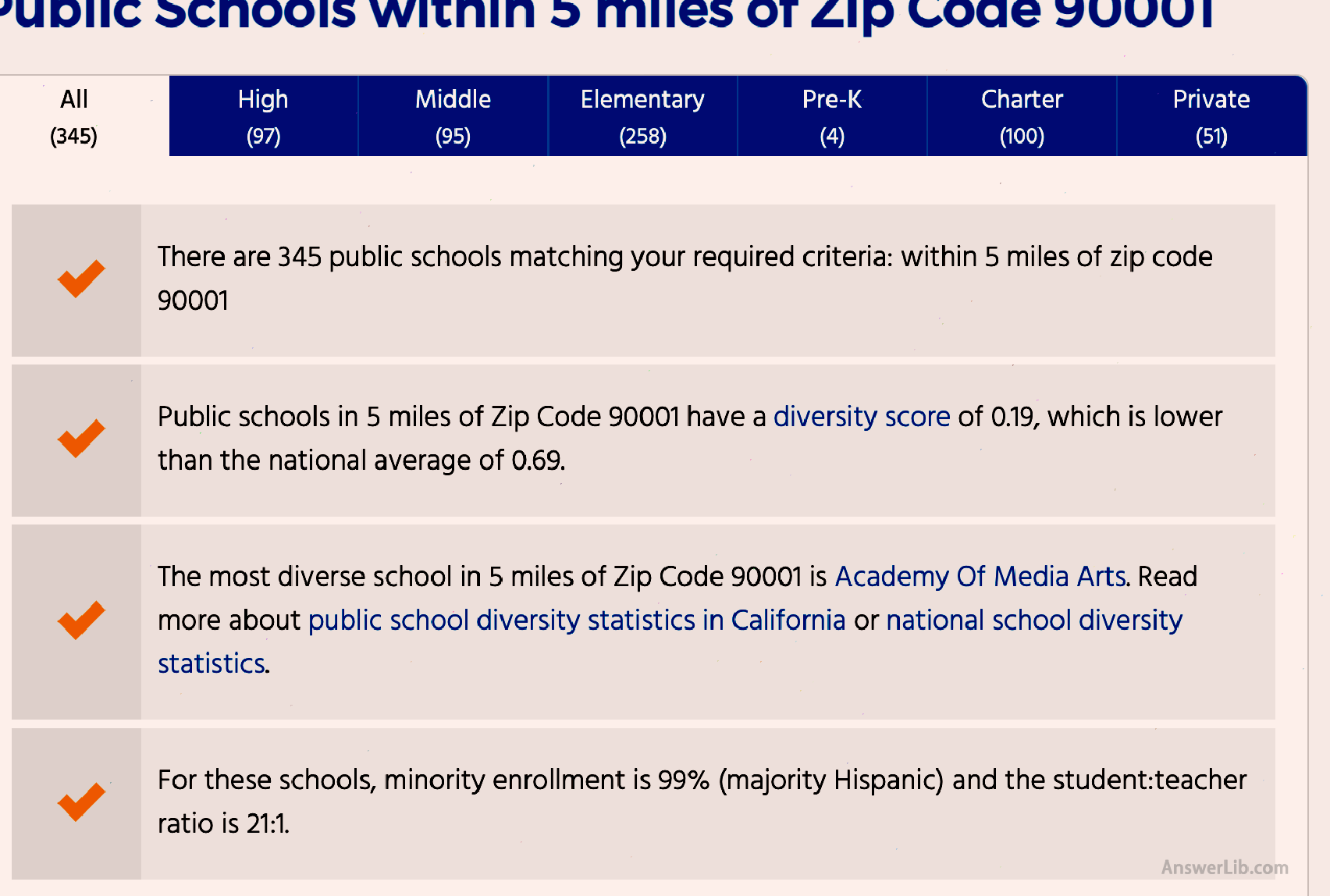
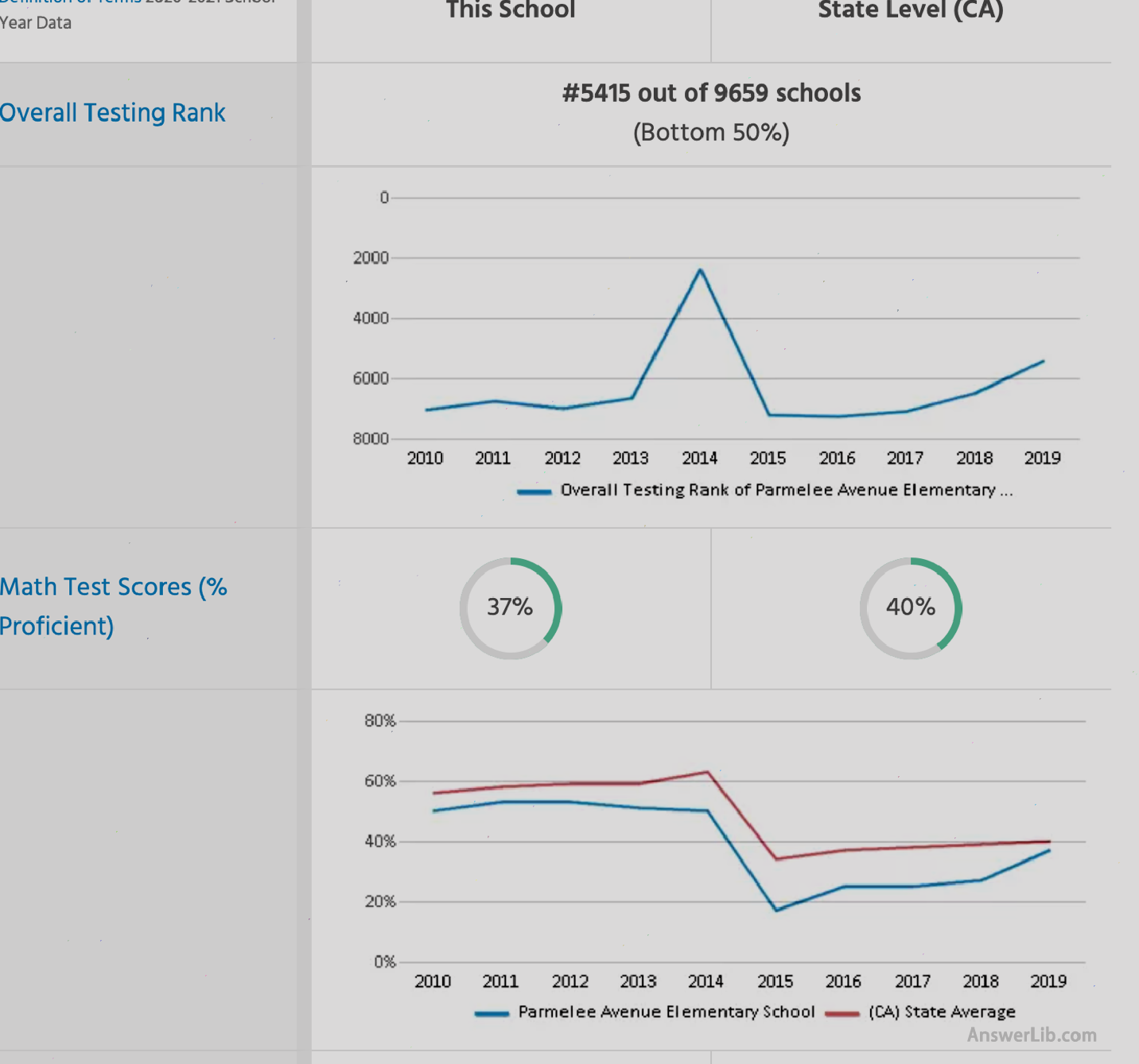
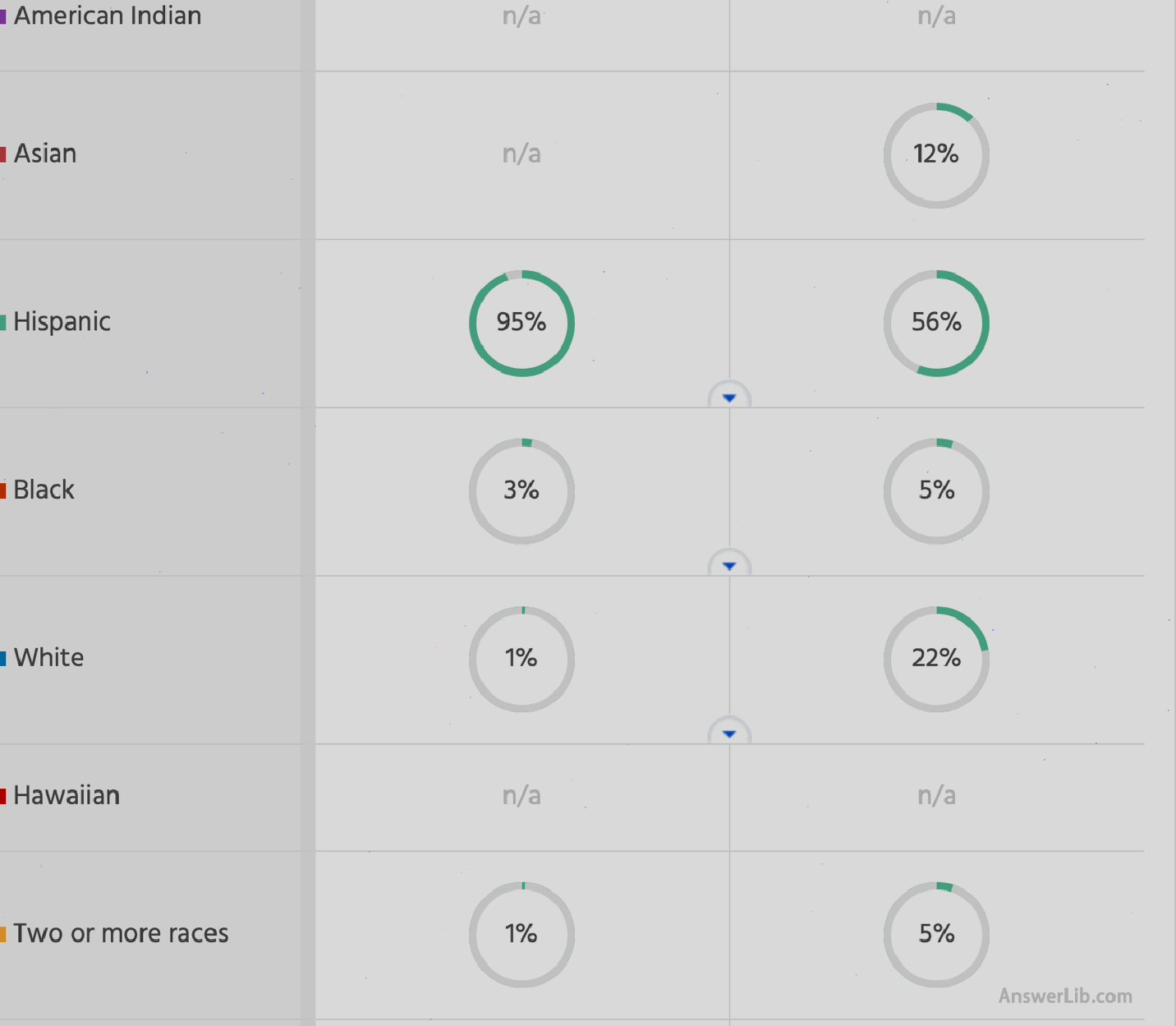
Question 6: How to understand the target school more in detail?
More children’s education articles
